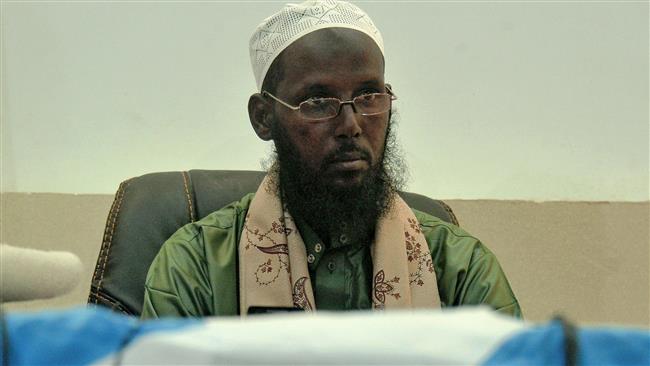
RNA - Sheikh Mukhtar Robow, also known as Abu Mansur, who was also al-Shabab's spokesman, told reporters at a heavily guarded hotel in Mogadishu on Tuesday the militant group did not represent the interests of those it claimed to.
"I left al Shabab because of misunderstanding, and I disagreed with their creed which does not serve Islamic religion, people and the country," Sheikh Robow said, adding, "I urge the militants to leave al-Shabab."
The Somali government earlier announced that Sheikh Robow had finally defected to the country’s military.
Colonel Nur Mohamed, a Somali military officer, confirmed on Sunday that Sheikh Robow had defected to the government forces.
Sheikh Robow and his loyalists had been laying low in jungles of Bay and Bakool since the commander broke ties with Shabab four years ago.
He was target of several attacks by Shabab militants who tried to kill or capture him.
The government said in June that it had dispatched soldiers to protect the militant commander and that negotiations were underway to convince him to defect.
It was not immediately clear whether Sheikh Robow’s decision to defect was related to a move by the United States government two months ago to take off the notorious militant commander from a list of wanted terrorists. Washington removed a USD five-million reward for his capture and exonerated him from charges of sponsoring terrorism after five years.
The Somali government, which still grapples with Shabab-led militancy in some areas six years after the group was purged from the capital, hopes that recruiting Sheikh Robow could give the military more operational freedom in Bay and Bakool which could effectively slice Shabab's operational territory in two.
Some, however, have criticized the defection, saying Sheikh Robow should stand trial for the atrocities he has committed during years of insurgency.
The al-Shabab, an al-Qaeda-aligned militant group, was forced out of the capital by African Union troops in 2011 but still controls parts of the countryside and carries out attacks against government, military and civilian targets seemingly at will in Mogadishu and regional towns.
The Takfiri militant group is just one of the challenges facing the new Somali government, which is still struggling to expand its authority beyond the capital and other selected areas.
847/940